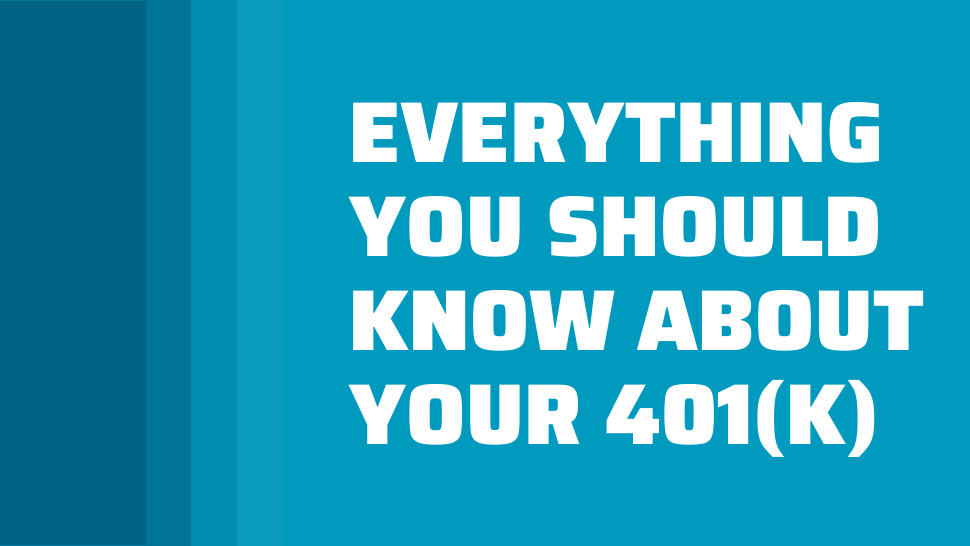Whether you’re just starting your career or you’re more of a seasoned professional, any time is a good time to start financially planning for your future. As a Credit Counselor here at Pelican State Credit Union, one area I educate our members on frequently is retirement.
Retirement may seem far away to some of us, making it seem less urgent to save money for the future. The good news? Thousands upon thousands of employers across the country offer some sort of 401(k) retirement plan!
Understanding exactly what a 401(k) is and how it works is extremely important, but it can also be challenging. Not to worry, though—I’m here to help!
Here’s everything you need to know about your 401(k):
What is a 401(k) plan?
A 401(k) is a retirement savings plan that makes it much easier for you to financially secure your path to retirement.
Once you open it, you can elect to have a certain percentage of your income deposited into the plan each pay period. The funds will come directly from your paycheck before taxes.
If you’ve found a company with great benefits, your employer may match your contribution up to a certain amount and make deposits into your plan as well. This means your 401(k) will grow even faster!
By not joining a 401(k) plan, you may be walking away and leaving free money on the table. I would encourage you to join your company’s 401(k) plan as soon as possible.
It does not matter how young or old you are. Everyone deserves to build a nest egg. If you’re not currently enrolled in a 401(k) plan, be on the lookout for enrollment periods from your employer!
What should I know before I enroll in a 401(k) plan?
As with most things, there are fees associated with operating a 401(k) plan. Your employer will take on the majority of the fees, but a fraction of those fees is passed on to you.
Here’s the big picture view: the fees will never outweigh the benefits of having a 401(k) plan.
One of the most notable benefits of a 401(k) plan is in the form of tax breaks. Money that is contributed to a 401(k) plan is tax deferred. This means that when you fund a 401(k), you reduce the amount of income that you have to pay taxes on. This could mean less money to the IRS!
On the other hand, no one wants to work forever! You’ll benefit by knowing that you’re saving for your retirement years.
A 401(k) plan can be a powerful way to ease your mind at retirement.
How do contributions work in a 401(k) plan?
By now you’re probably getting excited and wanting to contribute most of your paycheck, right?
Hold your horses!
There are contribution limits. Your company will give you the option of choosing what percentage of your paycheck you would like to contribute. Everyone has different financial needs, but a general rule to follow is: whatever percentage your employer is willing to match, try to take full advantage of it.
The annual limits are set by the IRS and change over time. You can view the current limits on the IRS website. If you are over 50, you can contribute an additional $6,500 annually. Check with your company’s plan administrator for specific details.
Start by saving just 1% of each pay check if that is all you can afford. Even contributing small amounts can go a long way, and you can slowly increase your contributions.
Talk to your employer about enrolling in automatic contributions—once you start seeing your money grow, the idea of contributing to your retirement will seem less intimidating. Since your 401(k) can be accessed online, you will be able to monitor contributions and growth.
What else should I know about my plan?
When you are coming up with your retirement savings strategy, remember to have realistic expectations. If you leave your job, your 401(k) plan is yours to keep!
Roll your retirement money directly into a new tax-deferred account when you change jobs—don’t cash it out! There are various roll over options that allow you to merge with other plans and retirement accounts. Your former employer will no longer make contributions, but your new one will typically begin shortly.
Life happens, but if you are experiencing a hardship, it’s best not to withdraw unless it’s absolutely necessary. Make taking money out of your 401(k) your last option.
The consequences of early withdrawals from your 401(k) include hurting your current tax situation and your future investment potential. Depending on your company’s policy, there may be an option for you to borrow from your 401(k) plan.
For many, this is a discreet and cost efficient way to borrow if the need arises. Check with your company’s 401(k) plan administrator for details and restrictions. If you borrow from your 401(k), try to continue making new contributions while repaying the loan, to limit damage to your final nest egg.
I also spoke with Pelican’s Payroll and Benefits Specialist, Keli Boudreaux, to get her advice when it comes to saving for retirement. Keli is incredibly passionate about saving for the future and believes it’s a benefit everyone should take advantage of!

What is something you tell new employees about the importance of 401(k)?
I always tell my employees that retirement seems so far away, but think back to where you were 10 years ago or even high school. The time goes by so much faster than you expect it to.
I don’t want you to look back in 20 or 30 years and think, “I wish someone would have told me how important this is.” I’m here to tell you it is SO important and one of the best investments you can make in yourself and your future!
If you’re lucky enough to work for a company who also invests in your 401(k), then you need to make the most of that benefit. Don’t worry about what you haven’t done yet, think about all you can do if you start now!
What advice do you give employees who feel intimidated or overwhelmed by the 401(k) plan?
The best advice I can give to someone about their 401(k) is to start as soon as you can! The earlier the better. The sooner you can start, the more compound interest those funds will continue to grow.
My next tip is when you get an increase in your salary, so should your 401K! If you get a 3% increase, then bump up your 401(k) by 1%. You won’t miss it, and you can adjust your budget accordingly!
Finally, when possible, make sure you are making the most out of your company match. So if they are matching 5% dollar for dollar, then your goal should be to get yourself to that 5% as quickly as possible. Don’t leave funds that could be in your account and gaining interest on the table!
Any additional advice from an HR perspective?
I know a 401(k) can be overwhelming and intimidating, but there are so many resources out there to help you along the way.
If you’re just getting started, a target fund is going be the easiest way to invest your money. What a target fund does is look at your current age and what year you think you will retire.
They will invest your money for you accordingly and adjust as you get older and closer to retirement. Most plans have these funds available to them, and it takes the pressure off the participant to know what each fund means and how aggressively their money is invested.
How are you saving for future retirement? Let us know your comments below!
Once a Pelican State CU member, always a member—through life’s milestones, we’ll always be there to help you with your financial needs. Your Financial Family for Life. Give us a call at 800-351-4877.



